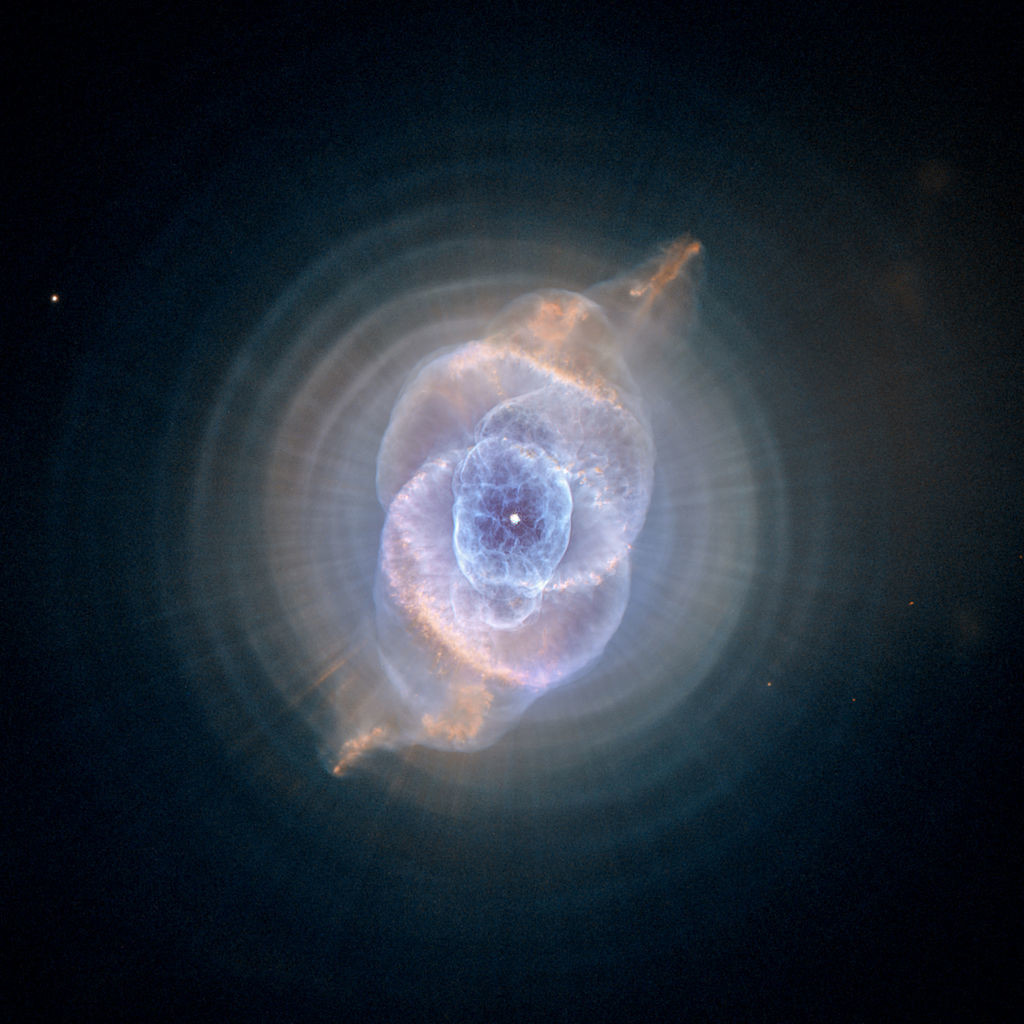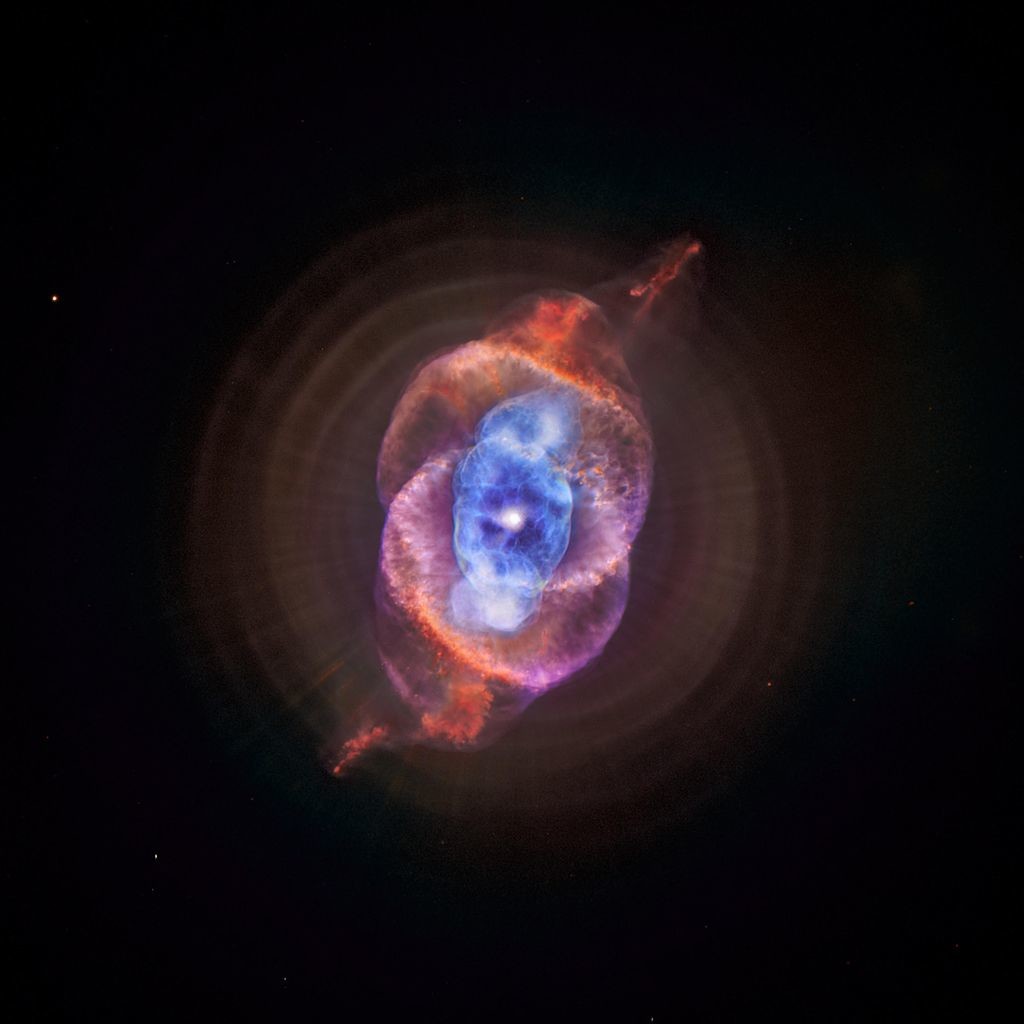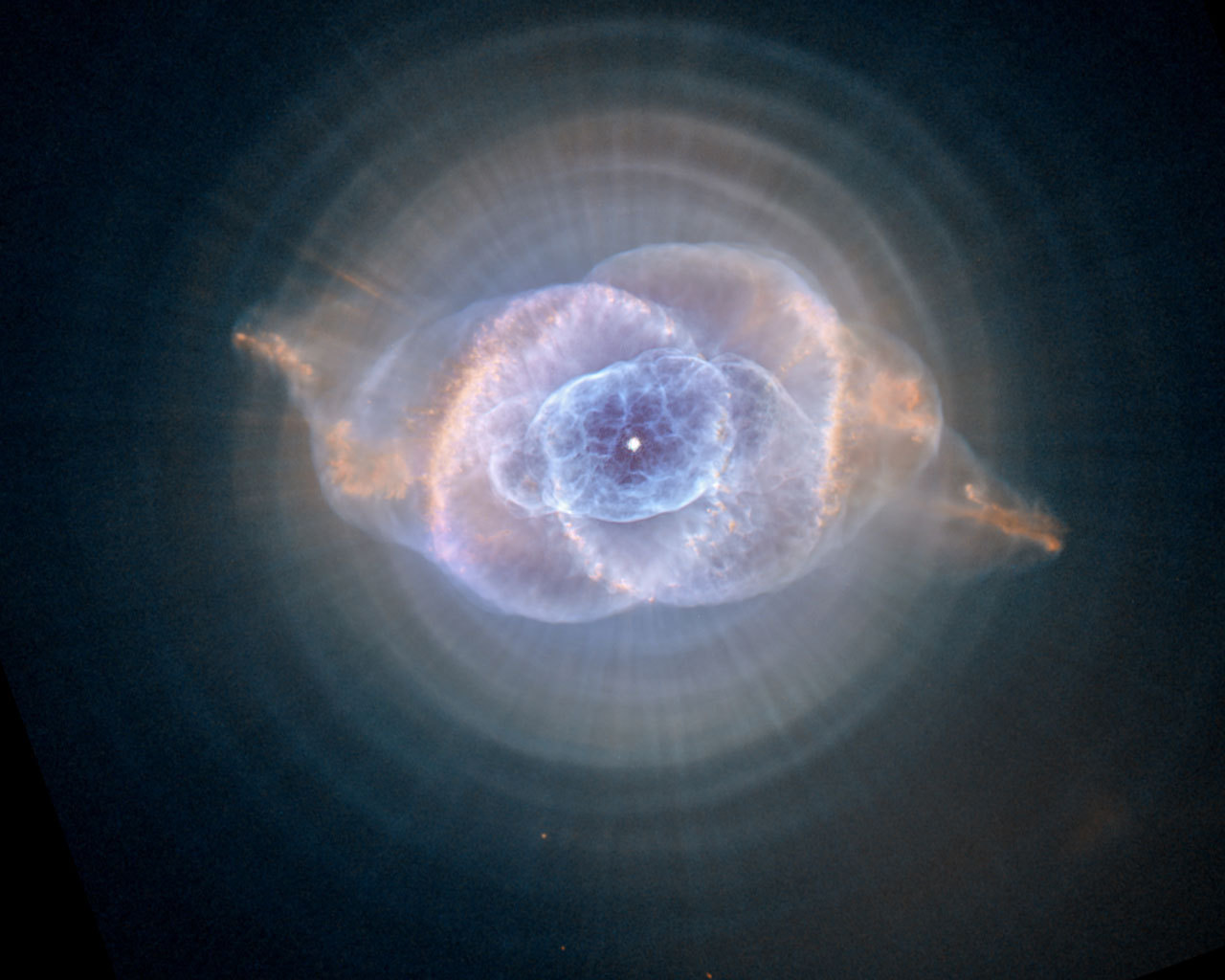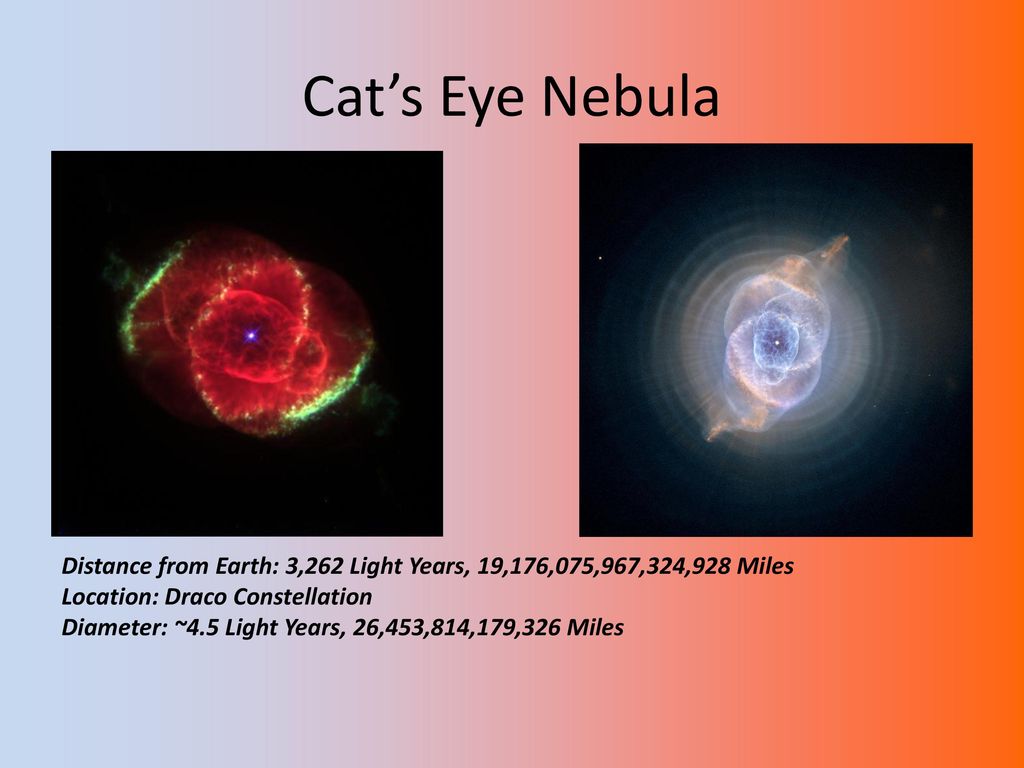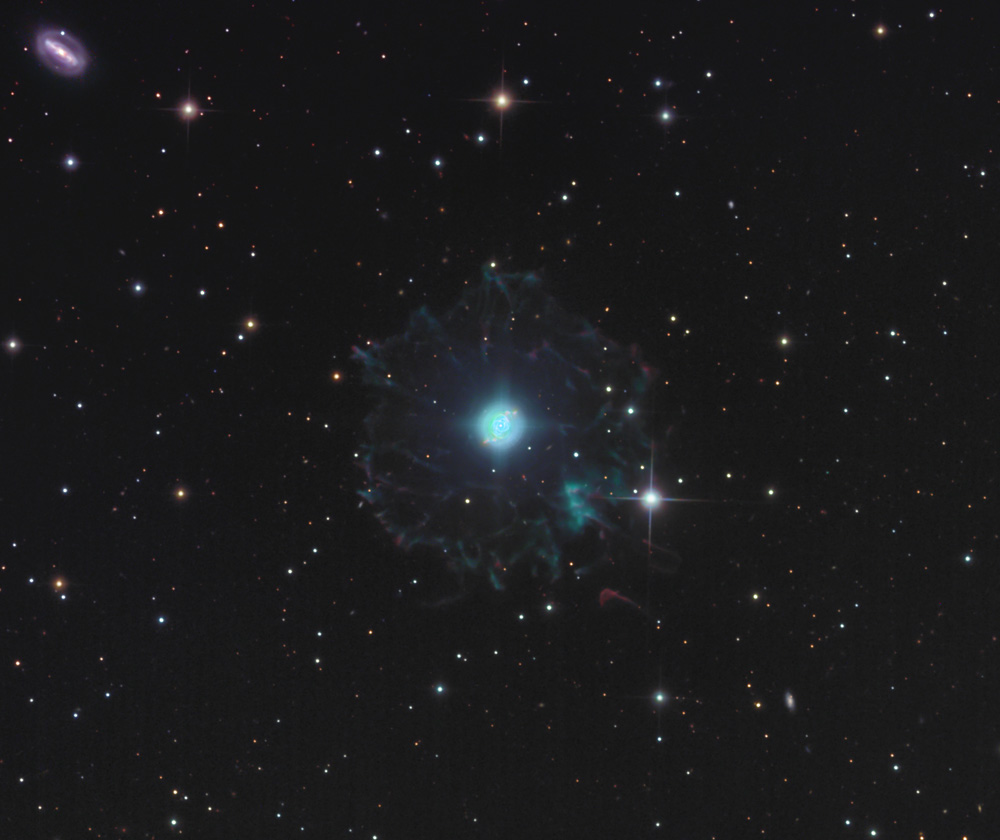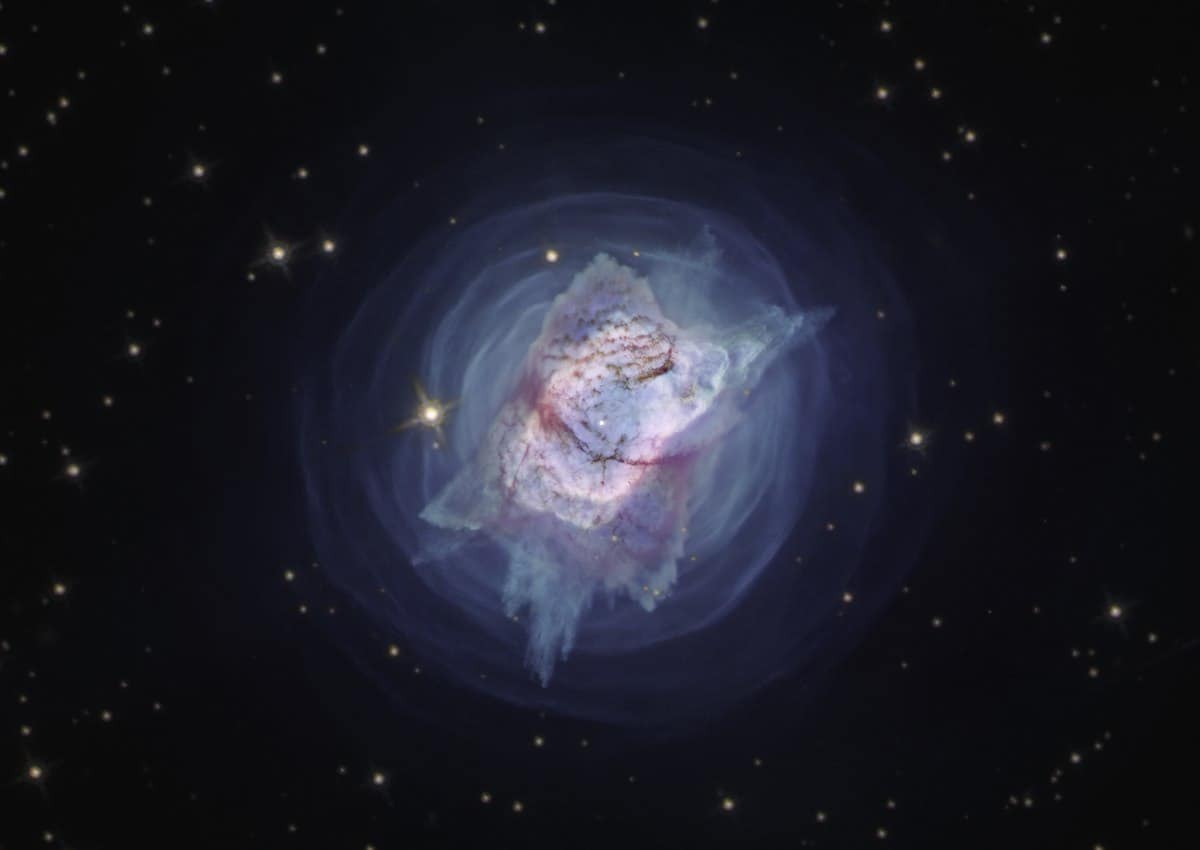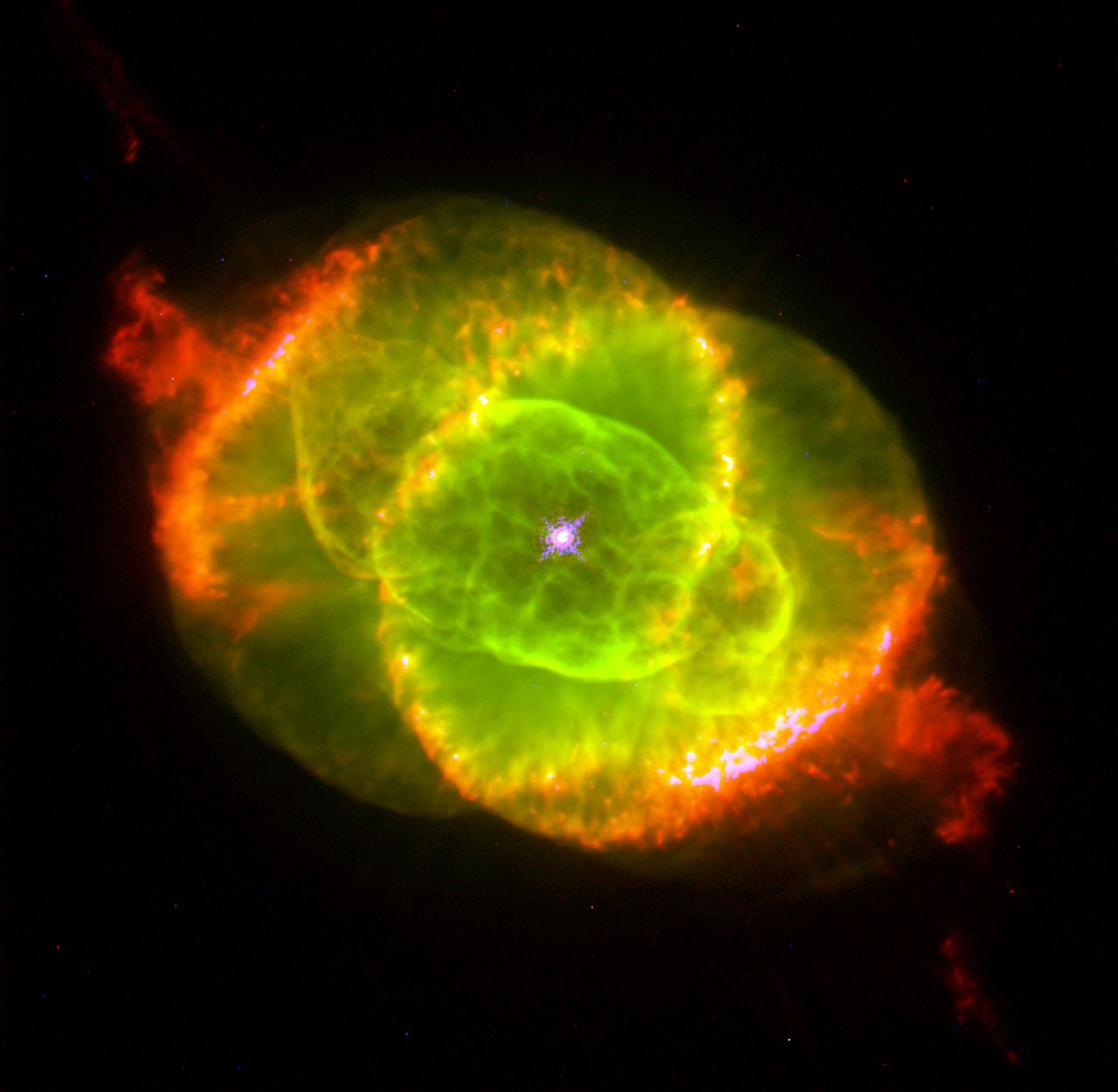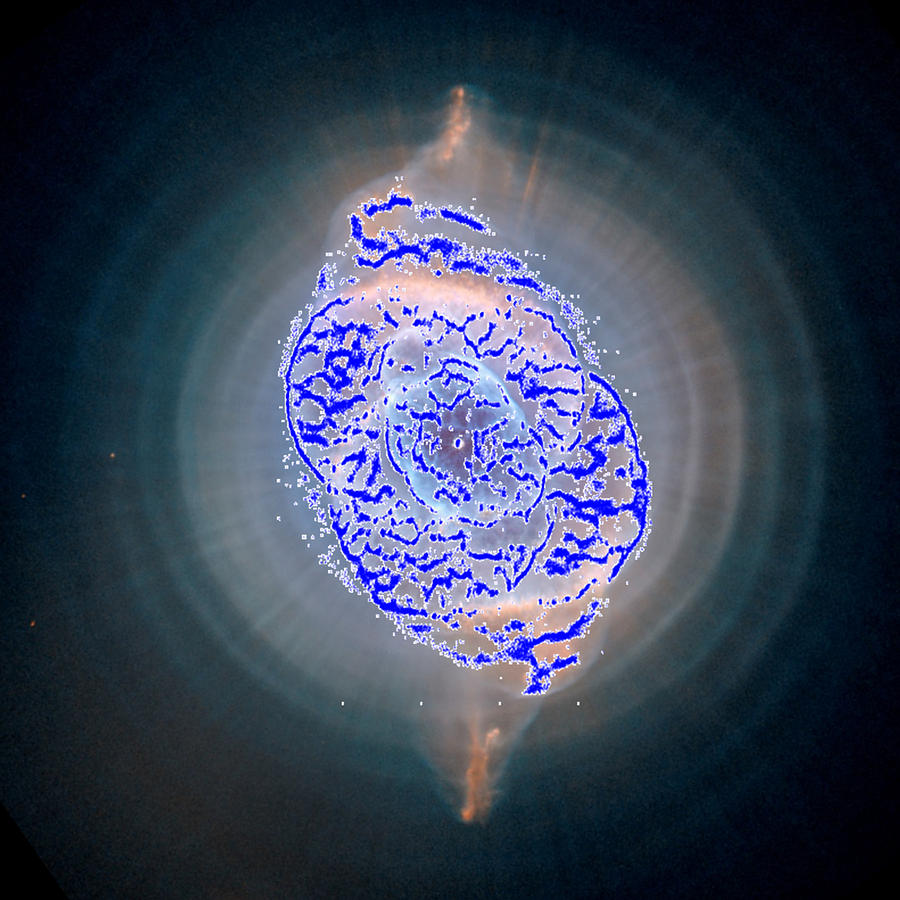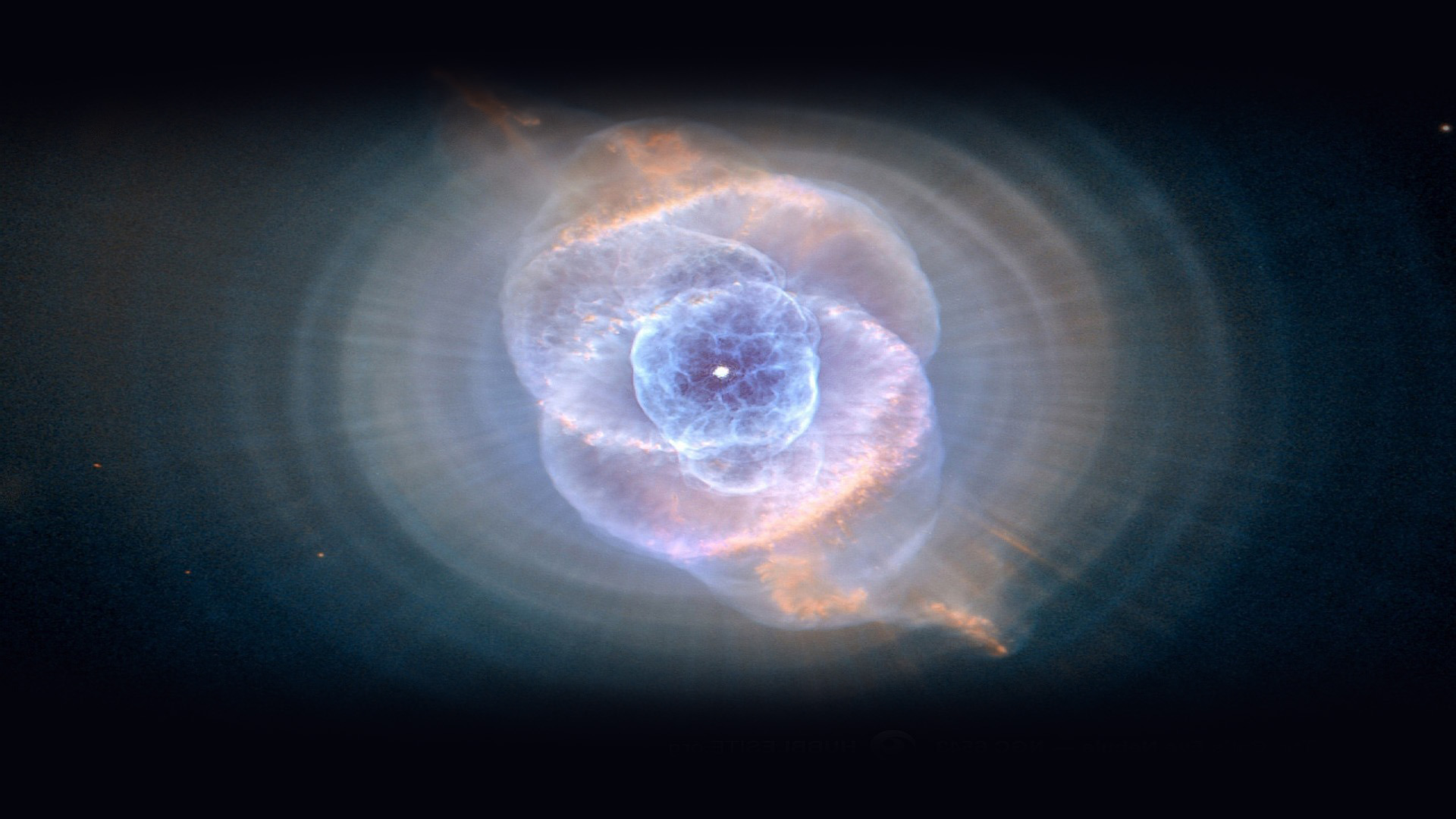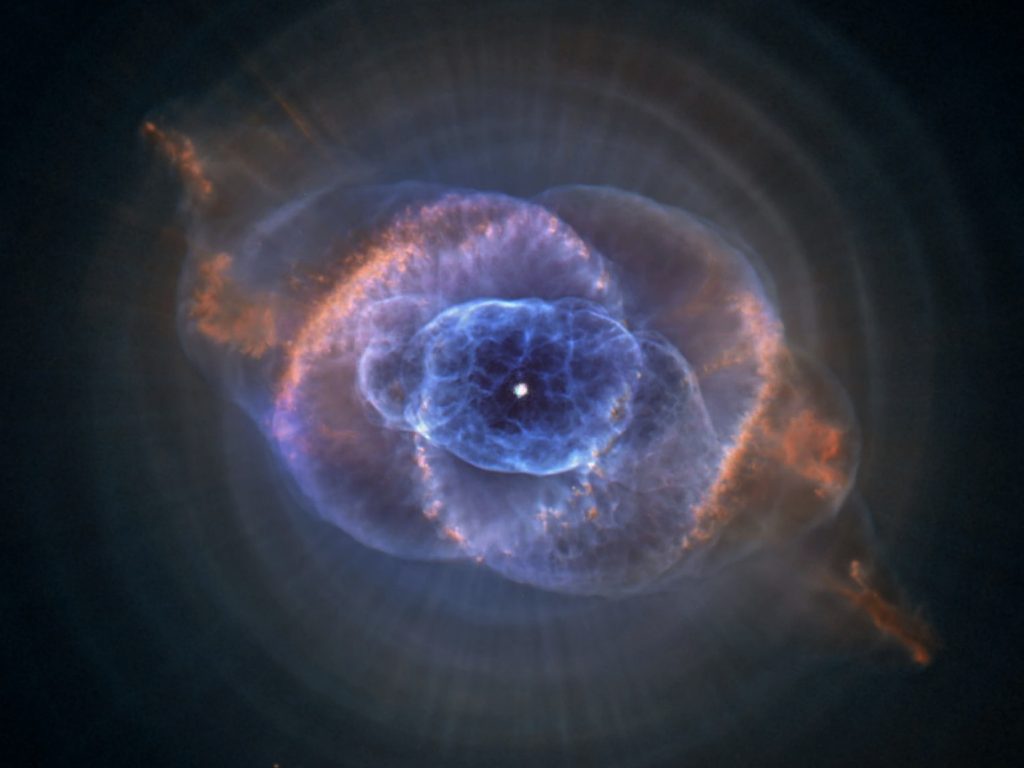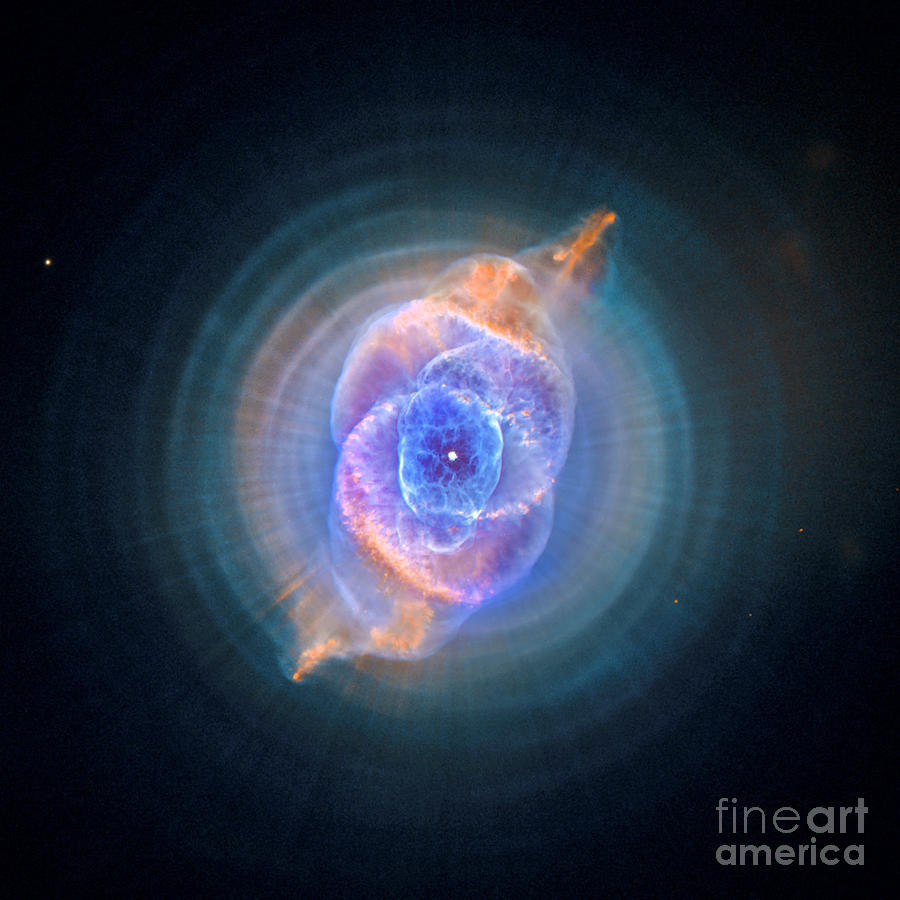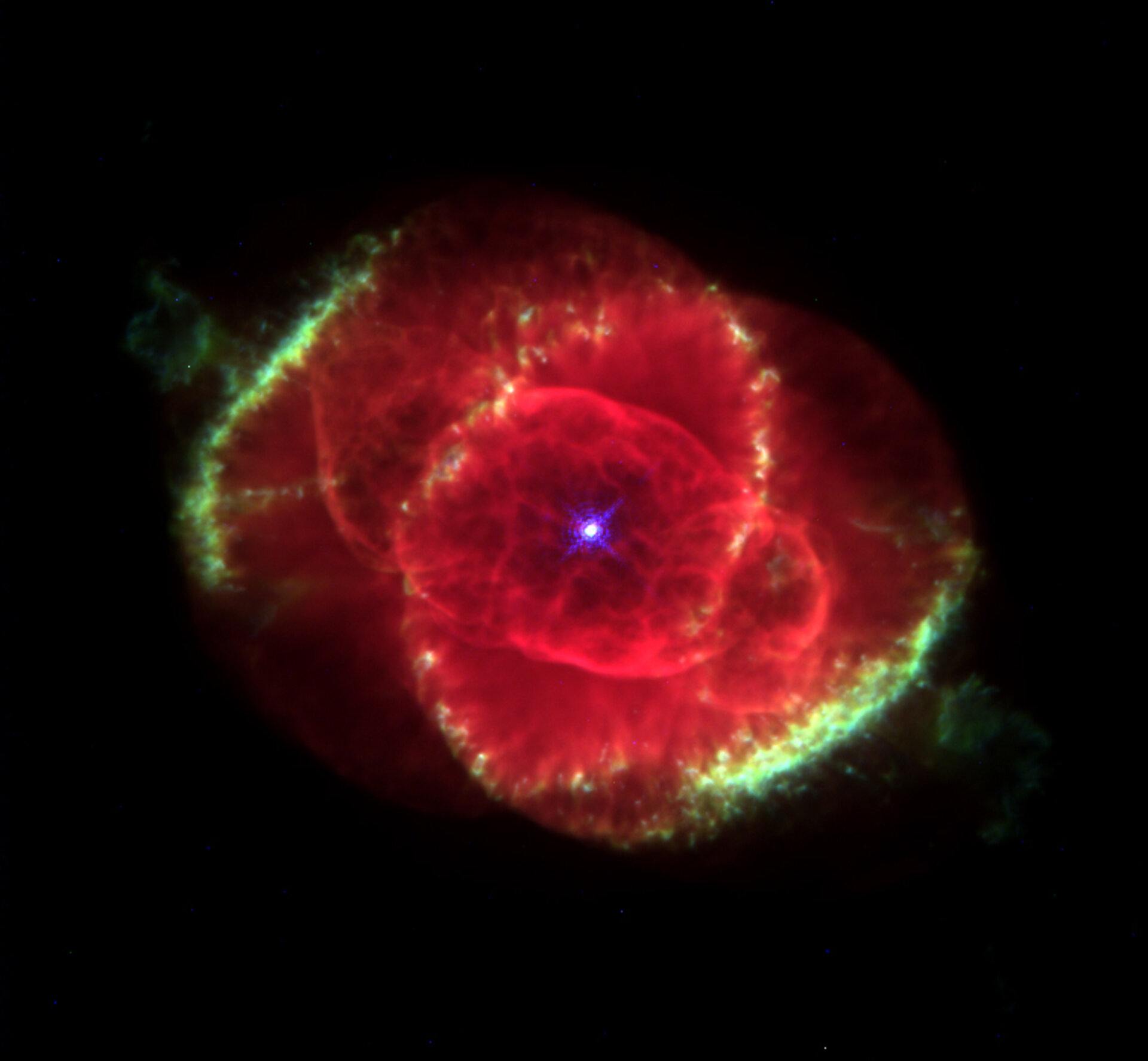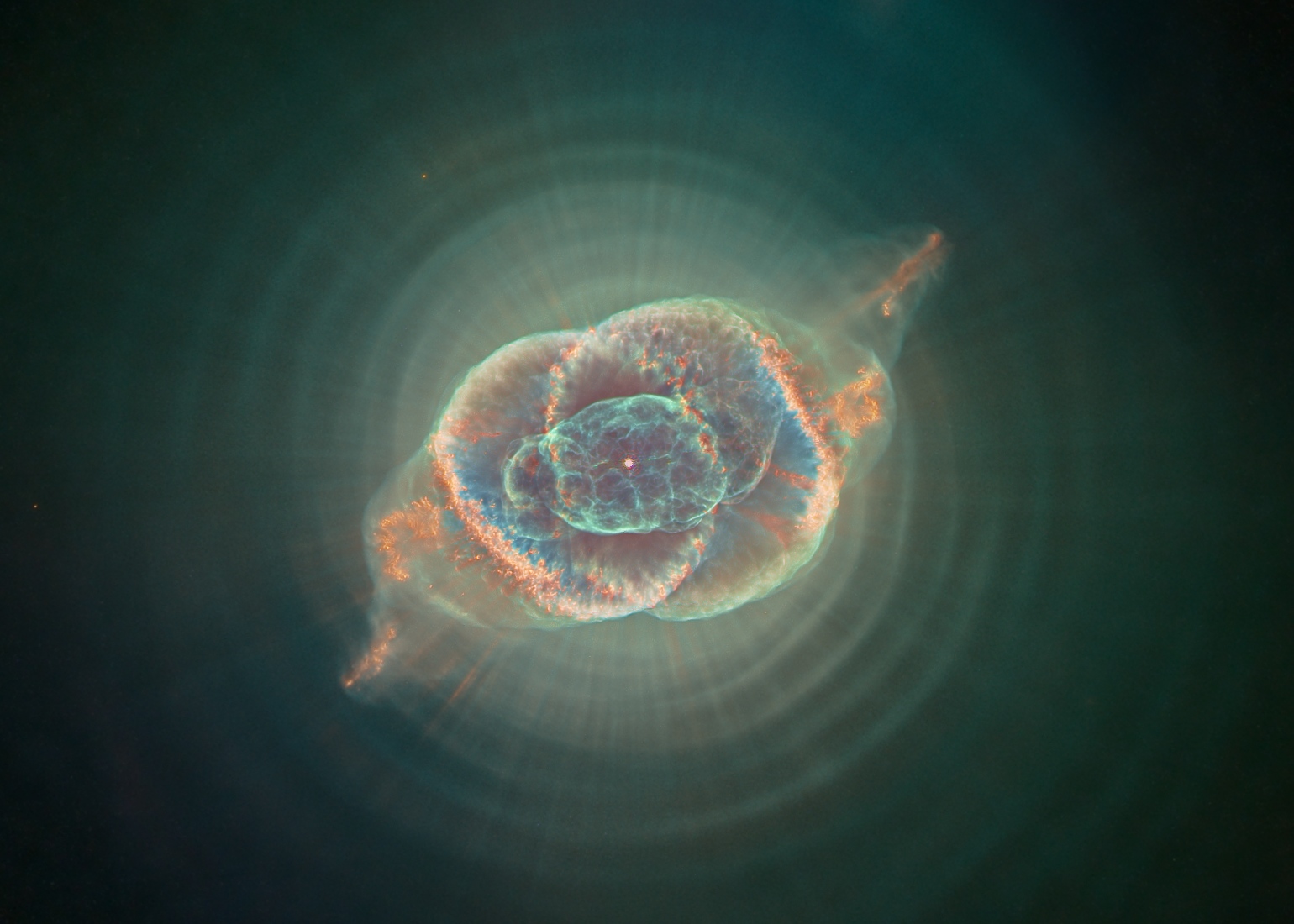Cat's Eye Nebula Facts
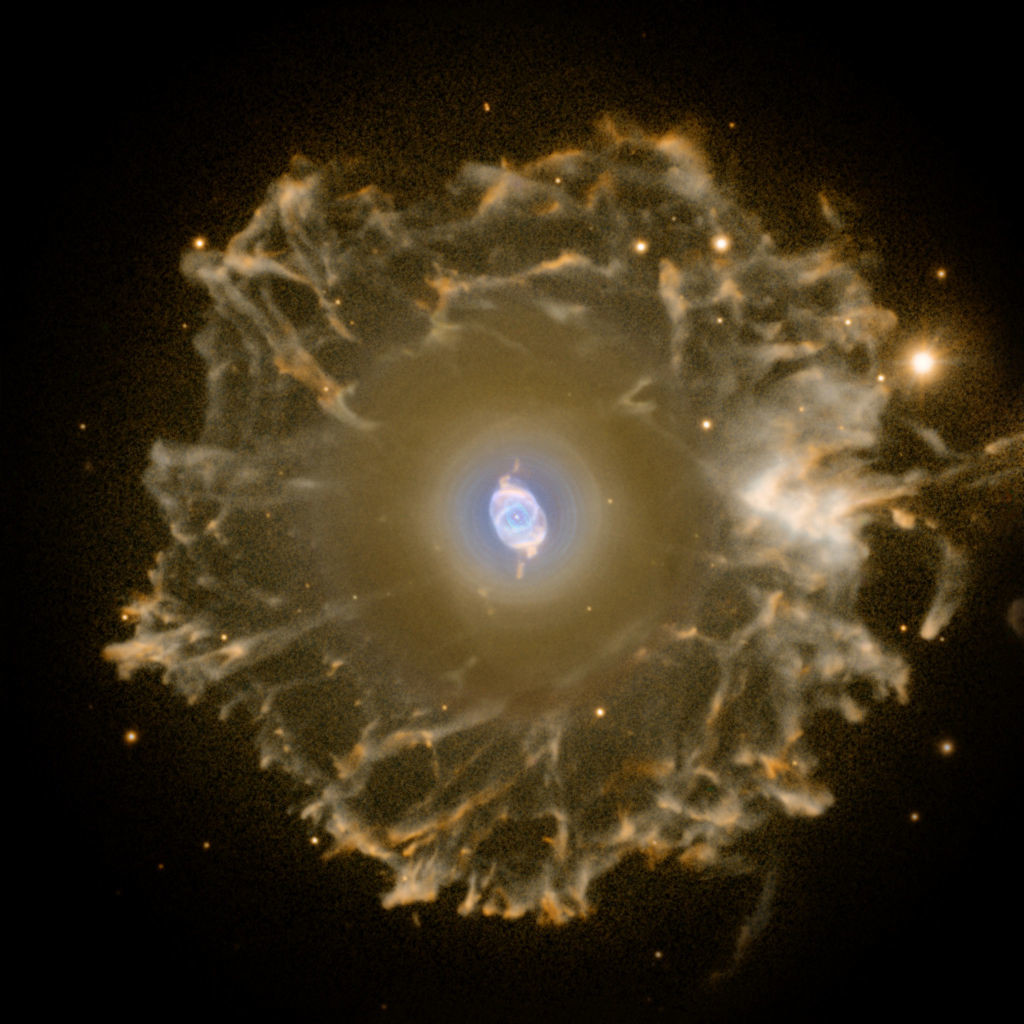
Estimated to be 1000 years old the nebula is a visual fossil.
Cat's eye nebula facts. A light year is about 6 trillion miles how far light moves in a year. The Cats Eye Nebula was the first planetary nebula to be discovered with a spectroscope. But as time passed that star lost most of its fuel and got older wit.
First discovered by William Herschel on February 15th 1786 this planetary nebula is a real gem of the night sky. Its angular expansion rate is. No two look alike.
This NASA Hubble Space Telescope image shows one of the most complex planetary nebulae ever seen NGC 6543 nicknamed the Cats Eye Nebula Hubble reveals surprisingly intricate structures including concentric gas shells jets of high-speed gas and unusual shock-induced knots of gas. This image reveals new details of the Cats Eye Nebula catalogued as NGC 6543 one of the most complex planetary nebulae ever seen. The Cats Eye Nebula is a very bright nebula in the northern constellation Draco.
How to Find Caldwell 6 The Cats Eye Nebula. It was used to develop Expansion parallax. It sits 3300 light years from us and contains some mysteries that remain unexplained today.
The Cats Eye nebula has a Wolf-Rayet Star at the centre which is 10000 brighter than our own star the Sun. The Cats Eye Nebula has a complicated and beautiful structure made from multiple expanding spheres of gas. The Cats Eye Nebula is estimated to be 3300 light years from Earth.
Though the Cats Eye Nebula was one of the first planetary nebulae to be discovered it is one of the most complex such nebulae seen in space. The Cats Eye Nebula The image from Hubbles Advanced Camera for Surveys ACS shows a bulls eye pattern of eleven or even more concentric rings or shells around the Cats Eye. A planetary nebula is the glowing gas ejected during the final stages of evolution of a star similar in mass to our Sun.
